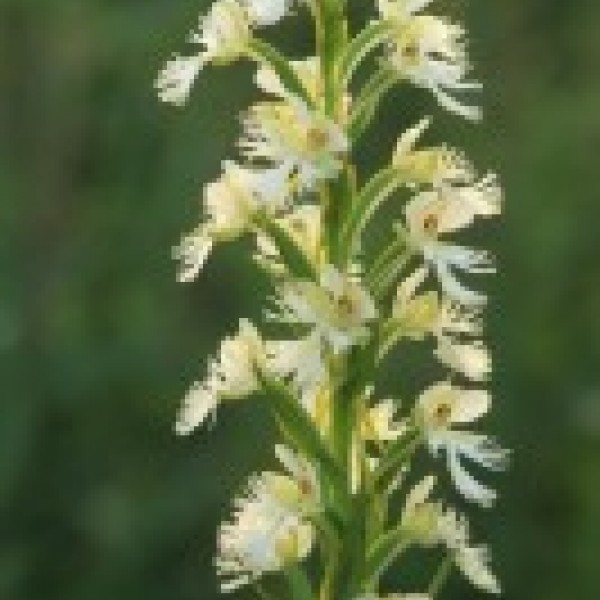
Pollinator limitation and population genetics of a federally threatened orchid 2015
Chicago and Northeast Illinois
Ecology, Genetics, Population Biology, Reproductive Biology
Habitat fragmentation of Midwestern prairies has lead to many consequences for plant species, including disruption of plant pollinator interactions. Pollinator limitation in fragmented habitats can lead to reduced seed set, subsequent reduction of population size, and higher likelihood of inbreeding. Additionally, orchids are of special conservation concern because they can act as bio-indicators of high quality ecosystems. Platanthera leucophaea (The Eastern Fringed Prairie Orchid) was once common throughout contiguous prairies, but due to a population decline of over 70% was listed as Federally Threatened in 1989. Hand pollination has been employed since 1991 to increase seed set due to assumed pollinator (Hawkmoth) limitation in small populations. The question remains, will pollinators return if population sizes increase? Additionally, what have the genetic impacts of hand pollination been on populations of P. leucophaea?
This internship focus will be twofold: investigating the genetic impact of ~17 years of hand pollination, and assessing pollinator presence in small and large orchid populations. Preserved DNA samples from populations sampled in 1999 and new leaf samples collected from the re-sampling of these populations in summer 2015 will be analyzed using microsatellites. Pollinator presence will be investigated through nocturnal light trapping of hawkmoths and co-flowering plant visitation will be assessed through pollen slide collection. Additional opportunities exist for gaining hand-pollination experience, collecting demographic data, working with volunteers, and outreach through the US Fish and Wildlife Service. This work will directly assist in the recovery of P. leucophaea, informing the species conservation status.



